How 'suicide survivor' Kathryn Littlewood rebuilt her life from rock bottom
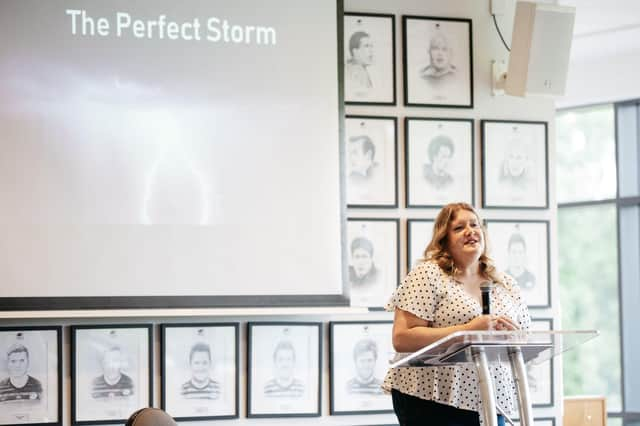

She was working in a harrowing job as a child protection officer in Sheffield, and was struggling with crippling anxiety, and chronic insomnia - both of which she was self-medicating with alcohol.
She was also a single parent, unsupported and exhausted, and with an undiagnosed bipolar disorder.
“It was the perfect storm,” she says.
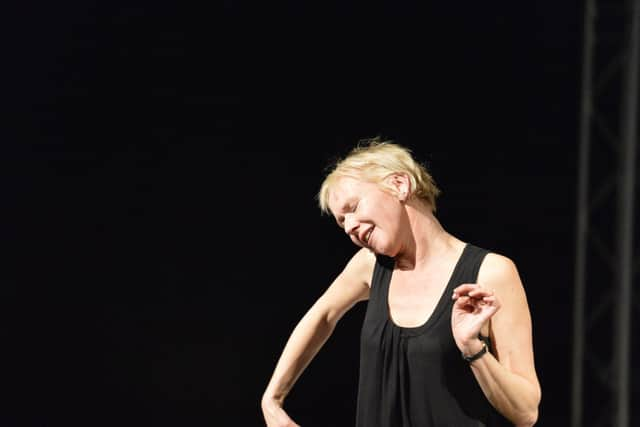

Advertisement
Hide AdAdvertisement
Hide Ad“I was drinking every night to knock myself out, then waking up at 2am feeling worse than ever.
It was this petri-dish of problems that led her to the top of The Moor’s multi-storey carpark one day, after a particularly difficult day at the office.
She stepped off, plummeting 85ft to the ground below, where she landed on her feet, pulverising her legs and breaking almost every bone in her body - but amazingly, she survived.
“I came round, saw the paramedic’s face, and realised I was still here,” Kathryn recalls.
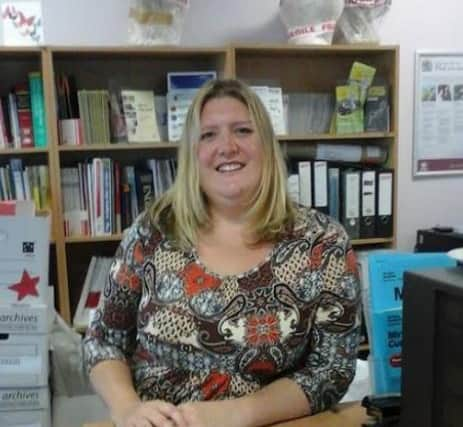

“My body was ruined, but I was alive.”
Advertisement
Hide AdAdvertisement
Hide AdThe trauma to her body was so extensive, the doctors treating her were forced to prioritise the life-threatening injuries, leaving her with severe disabilities.
But despite all she has been through, 16 years on, Kathryn’s life is unrecognisable from the one that pushed her to her breaking point.
Today, as we chat via Zoom, Kathryn looks happy and healthy, her face bright and open, and often with a warm smile, despite the gruelling subject matter.
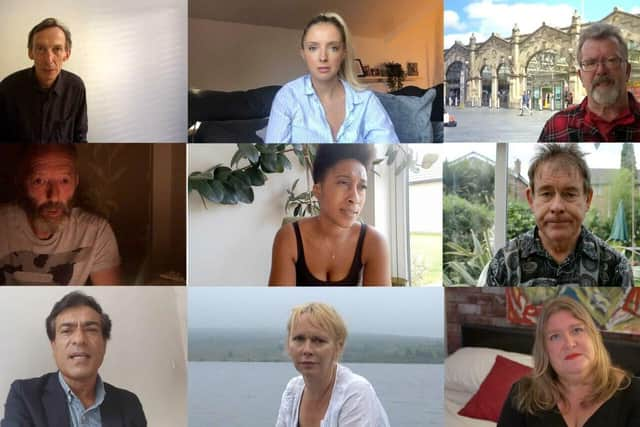

She reveals she’s spent the last few years resculpting her life, and eliminating everything that led to her downfall.
Advertisement
Hide AdAdvertisement
Hide Ad“It took a suicide attempt to drive me to really think about what was happening to me,” she says.
“As I tried to put my life back together, I realised that a lot of my problems were being exacerbated by too much stimulation.
“I’d been struggling since I was 15, when my dad died, and I started drinking and going out too much.
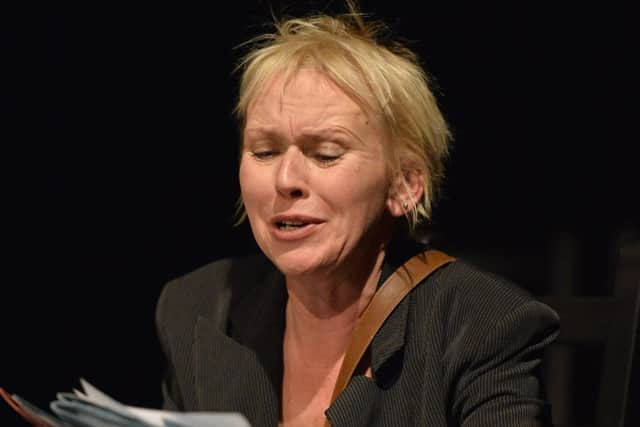

“I think a lot of people with anxiety can relate to the idea of using alcohol and drugs to suppress some of those raw feelings, but in the end they made it worse.
Advertisement
Hide AdAdvertisement
Hide Ad“I was dealing with extremely serious child protection cases all day, and a crippling workload that meant I was regularly up writing reports until the early hours.
“I felt guilty about the lack of time I had for my own child - a teenager who was getting out of control - I was drinking to numb my feelings, and existing on virtually no sleep.
“It was more than any human could deal with.”
In the years following her suicide attempt, Kathryn stopped smoking and drinking completely, and also began to monitor the amount of sugar and caffeine she put into her body.
“I learned my triggers, and do my best now to stay away from the stuff that’s bad for me,” she explains.
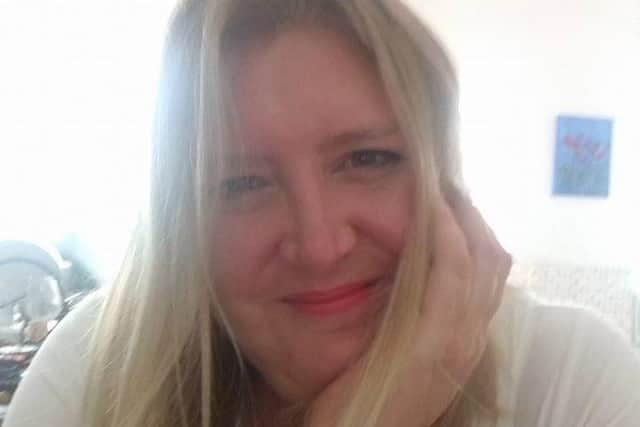

Advertisement
Hide AdAdvertisement
Hide Ad“I realised I have some serious sensory issues with things like noise; for example if I go to see a band play, I know I’m not going to sleep that night, so I’ll only do things like that rarely, and never if I’m working the next day.
“I also have a self-imposed comedy curfew,” she adds with a smile.
“No laughing after 9pm, which sounds crazy, but it’s what I need to do to sleep.”
Kathryn also began writing about her life, trying to put the year of her breakdown into perspective for herself. The result was her book, Cultivating Mad Cow, which she released just over a decade ago.
Advertisement
Hide AdAdvertisement
Hide Ad“It was like therapy for me, and once I’d finished, I felt I could get on with my life a bit better,” she says.
Her disabilities also opened up a whole new world. She took a job she loves, as a development worker for Disability Sheffield, and dedicates a lot of her free time to helping to raise awareness of mental health problems.
She adds: “I deliver mental health talks, and launched my own community Enterprise, Flippin Mental Theatre, which produced a one-woman show of my book, in collaboration with actress Penny Capper.
"The show debuted at Theatre Deli and the Crucible in 2019, and we’ve since secured arts council funding to take it on tour, though obviously Covid-19 has put those plans on hold.”
Advertisement
Hide AdAdvertisement
Hide AdThroughout lockdown, Kathryn took on another project, working with actors across the country to produce Suicide Monologues – a performance piece designed to help remove the taboos surrounding suicide.
The performance, inspired by a book called ‘Our Encounters with Suicide,’ sees well-known actors read one of the book’s monologues from their own home.
“The result is fantastic, and really paints a picture of the full impact of that decision one person can make to end their life on so many other people,” Kathryn explains.
“After all, suicide doesn’t happen in isolation.”
Kathryn reveals the thing most people want to know, when they hear her story, is whether she regrets what happened to her.
Advertisement
Hide AdAdvertisement
Hide Ad“Of course I regret breaking every bone in my body,” she says.
“And of course I regret the upset it caused, and all the time and money spent putting me back together.
“But, can I really regret something I had no control over?
“If there were amends to be made from that, I feel I’ve made them.
“But my struggles have given me gifts too; it put me in communities – disabled and mental health communities – where I can make a difference, and allowed me to be part of an arts movement within those communities.
Advertisement
Hide AdAdvertisement
Hide Ad“We’re here on this planet for such a short time, and rather than be miserable and unwell, I choose to get up every day, and be a part of a world where I can make a difference.
"I choose life - as a mother, a grandma, a partner, a writer, a business woman – and as a suicide survivor.”
Need help? Call Sheffield Helpline: 0808 801 0440.